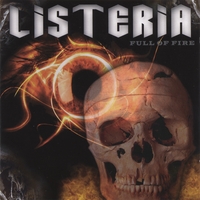The Rikshospitalet University Hospital must take responsibility for the death of a pair of unborn twins after their mother ate a soft cheese at Rikshospitalet University Hospital.
Food Safety Authority section leader Christoffer Nilsen told the newspaper Nationen that the hospital has the responsibility for food safety for everything they serve, and that such cheeses should not be given to pregnant women because of the risk of listeria.
.jpg) "Therefore this is a serious breach of the rules which the managing director of the hospital must take responsibility for."
"Therefore this is a serious breach of the rules which the managing director of the hospital must take responsibility for."
Rikshospitalet University Hospital strategy director Stein Vaaler was cited as saying that the FSA has been sent a report about the listeria outbreak but would not comment on the statements by the Food Safety Authority.
Hospitals should know better, but it is well documented that many pregnant women are not told about such food safety risks by their doctors.
The U.S. Centers for Disease Control recommendations for persons at high risk, such as pregnant women and persons with weakened immune systems, includes:
-Do not eat hot dogs, luncheon meats, or deli meats, unless they are reheated until steaming hot
-Avoid getting fluid from hot dog packages on other foods, utensils, and food preparation surfaces, and wash hands after handling hot dogs, luncheon meats, and deli meats
-Do not eat soft cheeses such as feta, Brie, and Camembert, blue-veined cheeses, or Mexican-style cheeses such as queso blanco, queso fresco, and Panela, unless they have labels that clearly state they are made from pastuerized milk
-Do not eat refrigerated pâtés or meat spreads. Canned or shelf-stable pâtés and meat spreads may be eaten
-Do not eat refrigerated smoked seafood, unless it is contained in a cooked dish, such as a casserole. Refrigerated smoked seafood, such as salmon, trout, whitefish, cod, tuna or mackerel, is most often labeled as "nova-style," "lox," "kippered," "smoked," or "jerky." The fish is found in the refrigerator section or sold at deli counters of grocery stores and delicatessens. Canned or shelf-stable smoked seafood may be eaten.
The USDA risk assessment for listeria is ready-to-eat foods is available here
http://www.fsis.usda.gov/OPPDE/rdad/FRPubs/97-013F/ListeriaReport.pdf
and one from the World Health Organization is here
http://www.who.int/foodsafety/publications/micro/mra_listeria/en/index.html
.jpg)

.jpg) "Therefore this is a serious breach of the rules which the managing director of the hospital must take responsibility for."
"Therefore this is a serious breach of the rules which the managing director of the hospital must take responsibility for." In response to a recent
In response to a recent  Researchers report in the latest Australian and New Zealand Journal of Health that in a survey of 586 women attending antenatal clinics in one private and two major public hospitals in New South Wales between April and November 2006,
Researchers report in the latest Australian and New Zealand Journal of Health that in a survey of 586 women attending antenatal clinics in one private and two major public hospitals in New South Wales between April and November 2006,